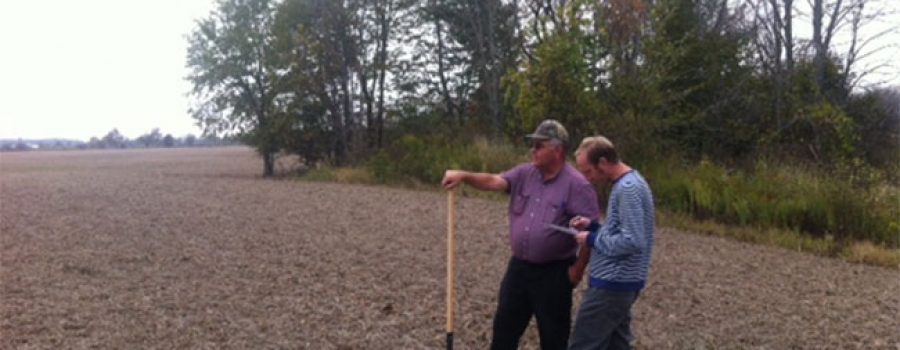The Lower Thames Valley Conservation Authority’s (LTVCA) mission is to lead by example in environmental protection in partnership with the community. Our stewardship programs offered to local landowners provide financial incentives to create a balanced and healthy watershed.
We focus our efforts on reducing nutrients and soil entering waterways and ultimately the Great Lakes. Staff apply for special funding which provides opportunities for local projects that will protect and restore species and habitats, encourage a sense of ownership of environmental rehabilitation efforts, and protect our source water resources. Below is a listing of what we have to offer:
Planting Trees:
Annually, a mid-March deadline for ordering tree seedlings and large stock trees results in over 100,000 trees planted across the watershed. We are in the height of our tree planting season right now! Site visits can be conducted year round, so don’t hesitate to call! There are different grants available to help offset the costs of planting depending on location and planting site size through Forests Ontario, Canadian Food Inspection Agency, Ontario Power Generation, and the LTVCA. The Chatham-Kent Tree of the Year Program offers a free tree to residents in early April and features a different tree each year!
Creating Wetlands:
Creating wetlands is one way to enhance your property and natural habitat. Landowners can contact us for funding which usually comes from Ducks Unlimited and the National Wetland Conservation Fund.
Elgin Clean Water Program:
This program is available for farmers in Elgin County for erosion control, wellhead protection, well decommissioning, wetland and riparian habitat enhancement/restoration/ protection, clean water diversion, livestock access restriction to watercourses and other projects.
GLASI: Jeannettes Creek Phosphorus Reduction and Monitoring Program:
The Jeannettes Creek Priority Subwatershed Project will evaluate the effectiveness of a focused stewardship approach on achieving measurable improvements to soil health and water quality. Reductions in edge-of-field losses of soil and nutrients, with a focus on phosphorus will be measured. This will be achieved by implementing several highly targeted agricultural Best Management Practices (BMPs) in the Jeannettes Creek Subwatershed. The goal is to observe cumulative reductions in soil and nutrient loss from the field’s edge as a direct result of the implemented BMPs. The program will offer grant funding to eligible farmers within Jeannettes Creek to implement the following agriculture best management practices: Cover Crops, Alternative Phosphorus Application Practices, and Crop and Field Nutrient Management.
The Agricultural Improvement Fund:
This is a grant available to all farmers across the Lower Thames Watershed. It’s focus is to assist farmers with implementing Best management Practices on their land such as buffer strips, windbreaks, cover crops and rock chutes.
.
The Species at Risk Farm Improvement Plan:
This is a grant available to all farmers across the Lower Thames Watershed who have completed Environmental Farm Plan training and have known species at risk on their property. This program is administered by Ontario Soil and Crop Improvement Association and provides funding to enhance and sustain natural areas and habitats. It provides funding to landowners for stewardship projects that directly benefit Species at Risk.
Growing Forward 2:
This is a grant available to all farmers across the Lower Thames Watershed. Although not mandatory, Environmental Farm Plan training will boost an applicant’s chance for funding. This program is administered by Ontario Soil and Crop Improvement Association and provides funding for various farm related improvements.
We encourage landowners to visit our website at www.ltvca for further information and application forms. Please contact us for details! Together we can make a difference across our watershed!
For Further Information Contact:
Greg Van Every
Environmental Project Manager
519-354-7310 ext.229
Email [email protected]
Amanda Blain
Land Stewardship Technician
519-354-7310 ext.228
Email [email protected]

